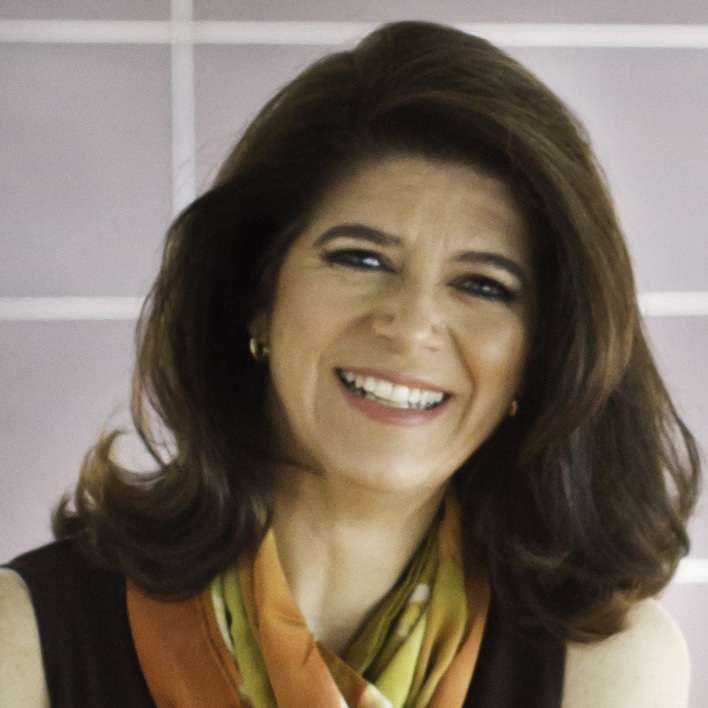In this interview with CiPP graduate and Positive Psychology Coach Jane Anderson, WBI faculty member Margarita Tarragona explains how personal narrative can be used as a powerful tool in therapy, coaching, education, and consulting. Watch the video, and then find out more about Margarita’s course, Your Best You: Crafting Positive Life Stories, beginning September 10.
View the transcript
The Power of Story: An Interview with Margarita Tarragona on Narrative Practices Conducted by Jane Anderson, Certificate in Positive Psychology alumni, teaching assistant, and Positive Psychology Coach
JA: Margarita, I thank you so much for being here today.
MT: Well, thank you, Jane.
JA: I was wondering if you could just start us out by talking about personal narratives and your work and what attracted you to it?
MT: I guess my interest in narrative practices came from the world of therapy. Nowadays, it’s broadened and it’s not just about therapy. We speak about narrative practices because there’s ways of working that can be used in therapy but also in coaching and consulting—even in education. They are based on the notion that people create meaning in their lives through storying their experience. That is, that we do not experience life as a series of disconnected events, but that we connect them so they are like a story, in the sense that they are events that are linked over time. There’s beginnings, climaxes, anti-climaxes, conclusions, developments. So, basically, when we say that we work in narrative practices, what it means is that we engage in conversations with people in which we explore their stories and, particularly when people are in pain or feeling stuck, we explore what stories may be limiting their options and what alternative stories they may have at hand, but maybe haven’t taken a look at or haven’t realized. So, basically, it’s a way of inquiry, a way of conversing, of asking questions, that helps people thicken the plots of their lives or weave bends or richer stories with their experiences.
JA: Margarita, could you talk a little bit about what happens as a result of exploring these conversations where you’re creating richer, denser, more complex ways of thinking about yourself and your life in the world?
MT: Yes. Usually what happens is that people either feel reconnected to what they feel is their preferred way of being, or feel more hopeful about their future, see more possibilities. This can be used, not only when people are stuck or in pain, but also one thing that I’m very motivated by is how we can use these ways of inquiring to explore areas that have to do with well-being and positive psychology. For example, you and I have spoken, Jane, how wonderful the VIA survey of character strengths is, and sometimes when people do the VIA on their own, they look at their results and they say, “Oh, this is very nice,” but I think, and I know you think, too, Jane, that there’s so much meat in those results, that there’s so much we can learn about a person. So one exercise that I really like to do is take somebody’s main strength and ask about them in a way that elicits narration to make that strength become more evident for the person.
JA: Fascinating. That is so interesting. Thank you so much, Margarita. So thrilled that we were able to do this, that you were able to share with us in this way. Just can’t thank you enough.
MT: It was mutual. Thank you.
Dr. Margarita Tarragona is the creator of the course Your Best You: Crafting Positive Life Stories at Wholebeing Institute. She is a psychologist who specializes in personal and relational transformation. As a clinician, coach, and organizational consultant, she incorporates scientific findings on flourishing from positive psychology with conversational and narrative ways of working with clients, with the goals of generating dialogue and expanding their life stories. Margarita is the author of Positive Identities: Positive Psychology and Narrative Practices.

 Watch the video: An Interview with Margarita Tarragona
Watch the video: An Interview with Margarita Tarragona








Excellent
Thank you, Adriana!
No habia regresado tu blog por un tiempo, porque me pareció que era pesado, pero los últimos posts son de buena calidad, así que supongo que voy a añadirte a mi lista de blogs cotidiana. Te lo mereces amigo. 🙂
Saludos
psicologas asturias http://www.carmenfernandezpsicologa.es/psicologas-asturias-oviedo.php
translation:
I had not returned to your blog because it seemed dense to me, but the most recent posts are of good quality; so I supposse I will add you to my daily blog list. You deserve it, friend 😉
Regards
Thank you! Gracias por leer el blog.